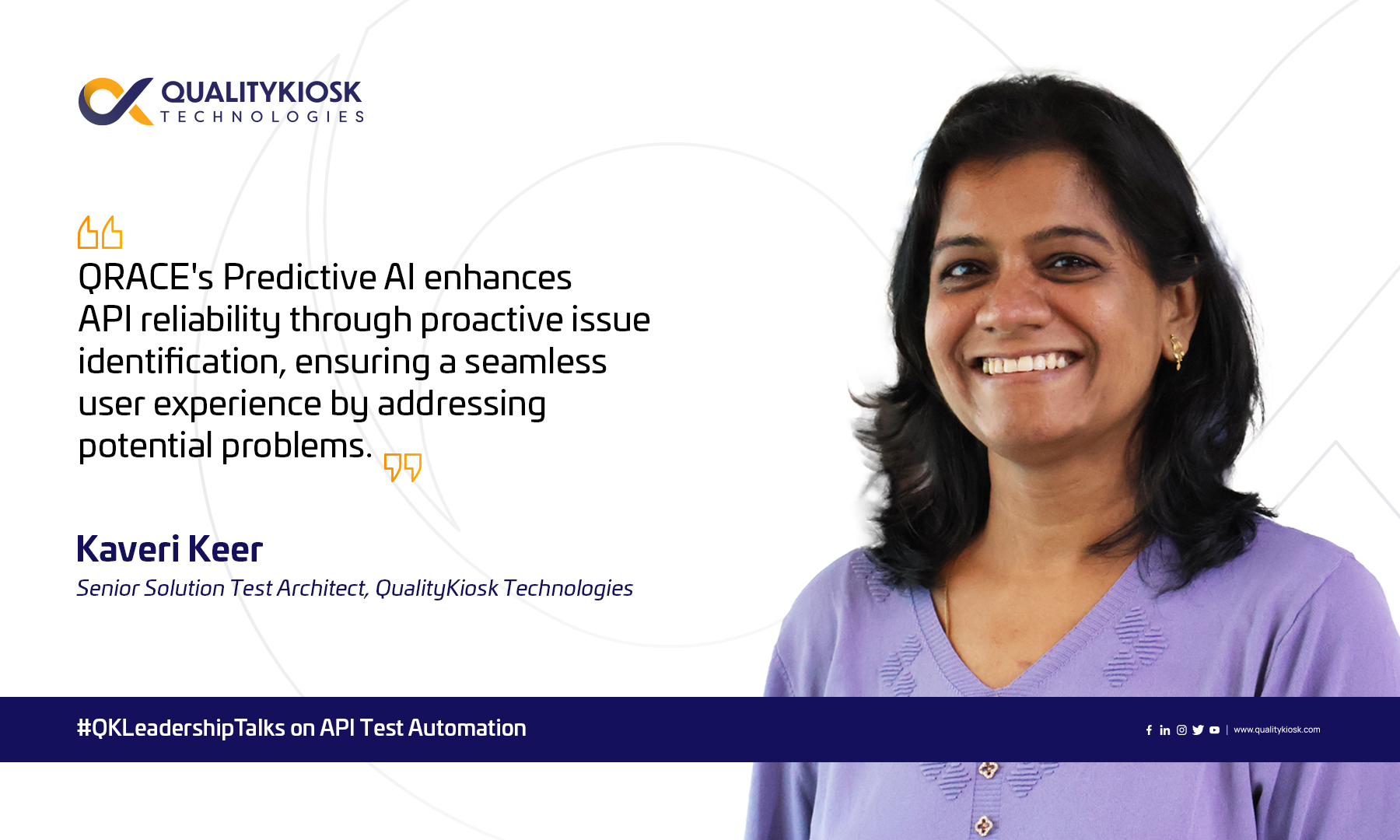Democratizing AI-driven, Automated Generation of API Test Cases with QRACE
As businesses continue to embrace the digital age, the role of APIs (Application Programming Interfaces) in their operations has become increasingly pivotal. APIs serve as the connective tissue of modern software systems, enabling seamless communication between different applications, services, and platforms. With the growing complexity of APIs, the need for rigorous testing has never been more critical. This is where API testing comes into play, and within this domain, Specification-based API testing stands out as a game-changer.
What is API Testing and Specification-based API Testing?
API Testing is a specialized form of software testing that focuses on verifying the functionality, reliability, performance, and security of APIs. It involves systematically assessing an API to ensure it meets its expected behavior and can withstand various scenarios, such as heavy loads and security threats.
Specification-based API Testing, on the other hand, takes API testing to the next level by aligning it closely with the API’s specifications. These specifications are typically documented in formats, which describe the API’s endpoints, request-response formats, and data validations. Specification-based testing involves creating test cases that validate whether the API adheres to these specifications.
For example, if an API specification states that a particular parameter should only accept values like “available,” “pending,” or “sold,” a specification-based test case would involve sending a request with an incorrect value, such as “test,” and expecting a specific response, like a “400 BAD REQUEST” status code.
The Importance of Automation in API Testing
Businesses are under constant pressure to deliver high-quality software at breakneck speeds today. Manual testing, though valuable, can be a bottleneck in this process, especially when dealing with APIs that generate hundreds or even thousands of test cases daily.
Automation Testing is the answer to this conundrum. By automating the testing process, businesses can achieve significant benefits:
- Speed and Efficiency: Automation allows for the rapid execution of test cases, reducing the time required for testing cycles. This acceleration is crucial in industries where time-to-market can make or break a product.
- Consistency and Accuracy: Automated tests are consistent in their execution, reducing the risk of human errors and ensuring that test results are reliable and reproducible.
- Comprehensive Test Coverage: Automation tools can efficiently cover a wide range of test cases, including edge cases and performance testing, ensuring that the API is thoroughly validated.
Leveraging QRACE for Specification-based API Testing
QualityKiosk Technologies proprietary AI–driven‘, test management platform, QRACE, is at the forefront of the Specification-based API testing revolution. It leverages the power of Generative and Predictive AI to expedite and enhance the API testing process.
QRACE’s Generative AI capabilities enable the automatic generation of test cases based on API specifications. QRACE quickly adapts and generates new test cases to validate the updated behavior. This eliminates manual test case creation, saving valuable time and resources when an API specification changes.
QRACE’s Predictive AI analyzes historical testing data and user behavior to predict potential issues or areas of improvement in the API. This proactive approach allows businesses to address potential problems before they impact users, enhancing the overall reliability of the API.
The Transformative Power of QRACE
With QRACE, businesses can unlock the full potential of Specification-based API testing and automation:
- Speedy Adaptation: QRACE’s Generative AI ensures that API test cases are always up to date, allowing businesses to adapt quickly to changing specifications.
- Complete Test Coverage: Automation with QRACE ensures that every aspect of the API, as defined in the specification, is thoroughly tested, leaving no room for oversights.
- Faster Time to Market: By expediting the testing process and eliminating manual bottlenecks, QRACE enables businesses to launch new features and services faster, gaining a competitive edge.
- Improved Quality: Predictive AI in QRACE helps identify and mitigate potential issues before they impact users, enhancing the overall quality and reliability of the API.
In conclusion, specification-based API testing is a critical component of modern software development, and automation with QRACE is the key to unlocking its full potential. By embracing automation and harnessing the power of Generative and Predictive AI, businesses can ensure that their APIs not only meet specifications but also exceed user expectations in terms of functionality, reliability, and performance. QRACE stands as a testament to the future of API testing, where agility, accuracy, and innovation converge to drive business success in the digital age.
About the Author
Kaveri Keer, has over 20 years of experience in test architecture development and implementation for WEB, Mobile, and API using open-source tools and frameworks. She specializes in Functional Testing, RPA, Performance Testing, Agile, and DevOps. Kaveri is a highly skilled and experienced professional, dedicated to delivering quality solutions in the field of test architecture. With her expertise in various testing domains and her proficiency in open-source tools and frameworks, she has successfully contributed to the success of numerous projects throughout her career.





